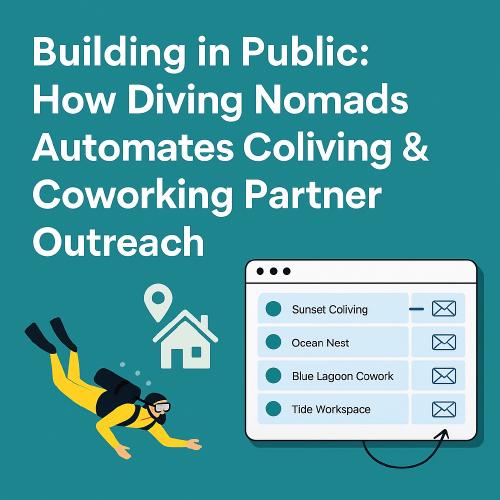There’s no shortage of leadership advice out there. Everyone has a framework, a matrix, or a magic quadrant. And honestly? Most of it feels disconnected from the messy, real-world challenges of building a company – especially when your team is growing, priorities are shifting weekly, and you’re just trying to keep your calendar from eating you alive.
This isn’t that kind of article.
What you’re about to read is raw, field-tested, and personal. These are the qualities I’ve come to value most in leadership – not because they look good on paper, but because they’re the difference between being the kind of leader people endure… and the kind they actually want to follow.
I don’t always get it right. But these ten traits are my compass. And if you’re building something meaningful and want to lead in a way that feels grounded, human, and real – I think you’ll find something here.
1. Clarity Over Chaos
Leadership starts with direction. Not perfect answers. Just enough clarity for the team to move. To breathe.
Clarity means alignment, not micromanagement. It’s giving people the confidence to move without checking in every five minutes. It means cutting through the noise, aligning people, and giving them enough structure to act with autonomy. Sometimes it means naming the tension in the room no one dares to say out loud.
Clarity also means making hard calls – even when things are still foggy. It’s less about certainty, more about honesty: “Here’s what we know, here’s what we don’t, and here’s what we’re doing right now.”
2. Composure Is Contagious
Startups are messy. Fires everywhere. But your energy as a leader sets the weather in the room. If you’re panicking, everyone feels it.
This doesn’t mean suppressing feelings or pretending to be a rock. It means self-regulating. Pausing. Responding instead of reacting. The calm leader creates space for others to step up.
And composure isn’t about always being calm – it’s about coming back to center. It’s about noticing your triggers and learning not to drag the whole team into your emotional storm.
3. Listen to Learn, Not to React
One of the most powerful leadership tools is your silence. Just listen. Not to fix. Not to prove. To actually hear what’s there.
People don’t want perfect answers. They want to feel seen. And honestly, they often solve their stuff if you give them space.
Listening means creating safety. It means putting your ego in the back seat and being genuinely curious. And it’s a skill. — A skill you can and should train like a muscle.
4. Communicate Like a Human
No one needs more corporate theater. Say what you mean. Say when you don’t know. Apologize when you screw up.
Your team isn’t looking for a superhero. They’re looking for someone real enough to follow when things get hard.
Speak plainly. Tell stories. Avoid buzzwords. The more relatable you are, the more trust you’ll build. The best communication is clear, candid, and rooted in respect – not authority.
5. Trust Isn’t Earned – It’s Given First
Delegating isn’t just handing over tasks. It’s handing over ownership – and letting go of control. Ownership means someone else does it their way.
If you can’t let go, you are the bottleneck.
Trust isn’t a perk. Control kills speed. Trust multiplies it. People will surprise you in good ways if you give them space. Hover, and you’ll just shrink their confidence.
This doesn’t mean blind faith. It means setting expectations clearly, then stepping back and letting people own their outcomes – including their mistakes.
6. Lead Yourself First
Your mood, your schedule, your boundaries – they bleed into the company. You can’t lead others well if you’re a mess inside.
Everything you do ripples outward. If you’re scattered, reactive, or constantly overwhelmed, that becomes your team’s vibe too.
Your calendar is a mirror. Look at it. What does it say about your values?
Leadership starts with self-awareness. What do you value? What do you tolerate? What do you avoid? Clean your side of the street first. Self-leadership is the stuff no one sees immediately – sleep, food, fitness, reflection, doing the inner work. But it’s what separates the reactive from the intentional.
The founders who grow fastest are the ones who take their own inner work seriously.
7. Grow People, Not Just KPIs
You’re not building software. You’re building the system that builds software. And that system is human.
Leadership is gardening. Not engineering.
People thrive with feedback, purpose, trust, challenge, safety. If someone on your team grows because of you, not in spite of you, you are winning.
This means creating opportunities. Delegating stretch assignments. Coaching. Providing feedback that helps people actually grow, not just “improve performance.”
8. Let Go of the Plan, Hold on to the Purpose
Rigidity is fragile. In startups, everything shifts. Plans fall apart. Strategy morphs. That’s not failure. That’s the game.
Don’t build a fortress. Learn to surf.
Good leaders are adaptive. Not flaky. They stay anchored in values, not in fixed plans.
Let go of your attachment to how. Get obsessed with why. The purpose is your compass. The path is a series of informed experiments.
9. See the System
Most problems aren’t people problems. They’re system problems showing up as people problems.
Don’t just fight fires. Redesign the fireproofing.
Zoom out. Ask why it keeps happening. Look at incentives, feedback loops, roles, culture. That’s where the real leverage lives.
If the same issue keeps cropping up across teams, it’s not a coincidence – it’s a signal. Fix the system, and you fix ten downstream headaches.
10. Stay Humble. Keep It Light.
The work is serious. You don’t have to be.
Leadership with a wink beats leadership with a wagging finger.
Admit when you’re wrong. Laugh with your team. Share your humanity. No one wants to follow a robot – even a high-performing one.
Humility isn’t weakness. It’s magnetic. Especially when paired with confidence and clarity. And humor? Humor creates connection. People do better work when they’re not afraid to smile.
Final Thoughts
This is the kind of leadership I practice, teach, and come back to when I lose my way. It’s not always easy, but it’s what works – in real companies, with real people, doing real things.
It’s not about being perfect. It’s about being consistent. Intentional. And willing to evolve.
If that’s the kind of leadership you’re trying to live too, let’s talk.
— Tobi(as Mende)
Founder @ Tech Unicorn Builders | Leadership & Ops Advisor





Use the share button below if you liked it.
It makes me smile, when I see it.